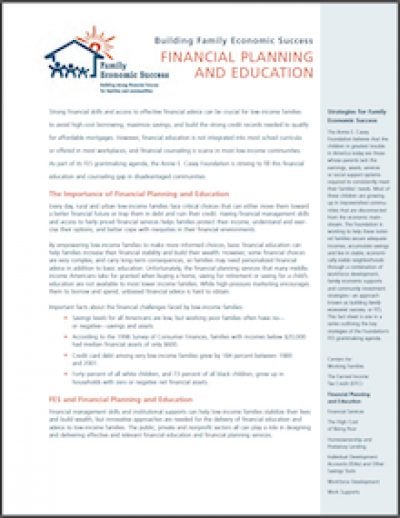Summary
This fact sheet spotlights the damaging financial education and counseling gap pervading disadvantaged communities across America. It shares ways that the Annie E. Casey Foundation is working to fill this void and inspire public, private and nonprofit players to think differently (and more expansively) about bringing vital financial skills and services to low-income families. It is part of a 10-segment series, called Building Family Economic Success, that showcases how the Foundation is helping to economically empower families across America.







